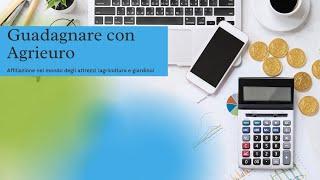For more details or enrolling in course contact us on:
WhatsApp: +923202116666
Pakistan is still largely a cash-based, informal economy. The majority of transactions are conducted in cash, except for large ones requiring a bank draft or pay order. Several studies suggest that up to 60 percent of the economy is informal, with the majority of local companies, particularly SMEs, undocumented and outside the tax net.
A number of government departments have started to offer services via the Internet. In the private sector, four Pakistani airlines now offer e-ticketing and almost all local banks offer online banking services. This segment of the economy is expected to grow steadily as there are approximately 50 million Internet subscribers in Pakistan, a figure that is expected to double over the next five years. As per local trade resources, Pakistan is the 46th largest market for eCommerce with a revenue of US$4 billion in 2020.
There are also more than 45 million Facebook users in Pakistan and several local companies now use social media to promote their products and services. According to the Pakistan Telecommunication Authority (PTA), the number of 3G and 4G users in Pakistan reached 98.12 million by end of March 2021, and the mobile banking sector shows promise.
Current Market Trends
The e-commerce sector has focused mainly on consumer products. Online customers in Pakistan search for and purchase consumer electronics, make employment queries, receive online education and counseling services, sell/purchase and gather information on vehicles, computers, financial and countless other products and services. Consumer choices and the records they generate also produce a trove of data that is used in targetted advertising.
#ecommerce #freelancing #onlineearning #makemoneyonline
. #pakistan_pics. #pakistanzindabad. #pakistanifashion. #pakistani. #multan. #quetta. #sindh.
#شیطان_کے_چیلے 108K Tweets #ام_حریم 56.9 #kashmir #موروثی_سیاست_نامنظور
WhatsApp: +923202116666
Pakistan is still largely a cash-based, informal economy. The majority of transactions are conducted in cash, except for large ones requiring a bank draft or pay order. Several studies suggest that up to 60 percent of the economy is informal, with the majority of local companies, particularly SMEs, undocumented and outside the tax net.
A number of government departments have started to offer services via the Internet. In the private sector, four Pakistani airlines now offer e-ticketing and almost all local banks offer online banking services. This segment of the economy is expected to grow steadily as there are approximately 50 million Internet subscribers in Pakistan, a figure that is expected to double over the next five years. As per local trade resources, Pakistan is the 46th largest market for eCommerce with a revenue of US$4 billion in 2020.
There are also more than 45 million Facebook users in Pakistan and several local companies now use social media to promote their products and services. According to the Pakistan Telecommunication Authority (PTA), the number of 3G and 4G users in Pakistan reached 98.12 million by end of March 2021, and the mobile banking sector shows promise.
Current Market Trends
The e-commerce sector has focused mainly on consumer products. Online customers in Pakistan search for and purchase consumer electronics, make employment queries, receive online education and counseling services, sell/purchase and gather information on vehicles, computers, financial and countless other products and services. Consumer choices and the records they generate also produce a trove of data that is used in targetted advertising.
#ecommerce #freelancing #onlineearning #makemoneyonline
. #pakistan_pics. #pakistanzindabad. #pakistanifashion. #pakistani. #multan. #quetta. #sindh.
#شیطان_کے_چیلے 108K Tweets #ام_حریم 56.9 #kashmir #موروثی_سیاست_نامنظور
- Catégories
- E commerce Amazon














Commentaires